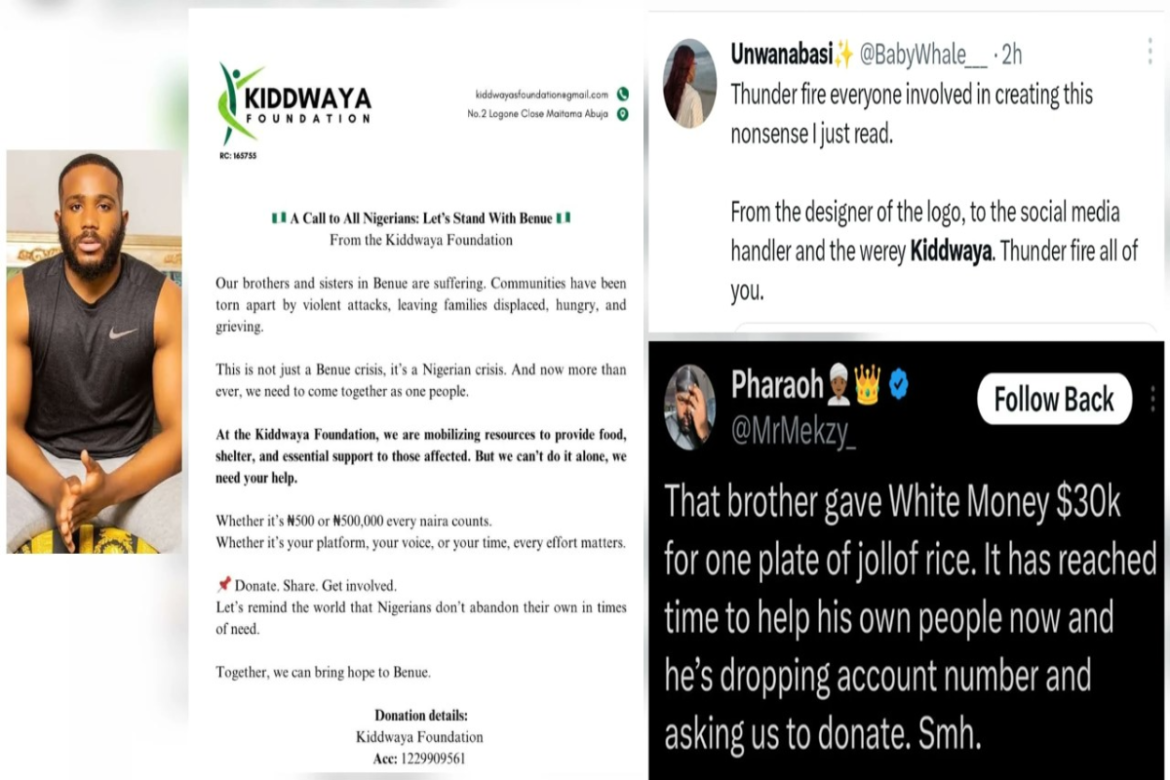Reality TV star and billionaire heir Terseer Waya, popularly known as Kiddwaya, is facing intense backlash on social media after launching a donation appeal for victims of the recent Benue State massacre through his foundation.
The former Big Brother Naija housemate posted a heartfelt message on X (formerly Twitter), urging Nigerians and the global community to donate generously to the Kiddwaya Foundation, which he said would channel the funds toward relief efforts for displaced and grieving families in Benue.
But what began as a call for compassion quickly escalated into controversy.
“If you truly care, start by using your father’s money,” one user replied.
“You’re asking poor people to fund your foundation while flying private jets?” another wrote.
The backlash was swift and fierce. Many Nigerians, still reeling from the grisly killing of over 200 people in Benue by suspected armed militia, questioned why Kiddwaya the son of billionaire businessman Terry Waya would solicit public donations instead of personally funding the effort.
Some users accused him of clout-chasing, while others questioned the transparency of the foundation itself.
“This tragedy doesn’t need a PR moment. If you want to help, help quietly and with impact,” one tweet read, gaining over 5,000 likes.
The phrase “Use your own money” trended briefly in response to the incident.
In a follow-up tweet, Kiddwaya defended the appeal, stating that collective action is necessary during humanitarian crises, and that “no single person can do it all.”
“My foundation is working on the ground to support Benue victims. This is not about me—it’s about the people,” he wrote.
He also promised to publish a full financial report of any funds raised and how they’re distributed, in an effort to quell the rising skepticism.
The incident has sparked a broader conversation about wealth, responsibility, and sincerity among Nigeria’s elite. Some celebrities and influencers came to Kiddwaya’s defense, stating that “philanthropy should be encouraged, not shamed,” while others agreed with critics that perception matters, especially during moments of national mourning.
The humanitarian crisis in Benue has prompted widespread grief and anger. As mass burials continue, displaced families are in desperate need of shelter, food, and medical aid. However, the question of who should bear the responsibility for aid government, NGOs, or private individuals remains contentious.
Kiddwaya’s appeal, well-intentioned or not, has exposed how quickly public trust can shift, especially when wealth and tragedy collide in the public square.


